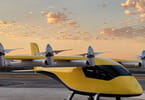While thousands of miles away from Ukraine’s volatile Crimea region where tension with Russia continues to escalate, the CNMI could see a fallout if the United States imposes economic and travel restrictions against Russia that may include a stop to a lucrative U.S. visa waiver program for CNMI-bound Russian tourists. The Inos administration, along with the Marianas Visitors Authority, said yesterday they are “closely monitoring this development.”
At stake is the CNMI’s estimated $130 million annual economic revenue from Russian tourists if the U.S. imposes travel restrictions against Russia.
MVA managing director Perry Tenorio said yesterday that flights from East Russia to the CNMI “continue as scheduled” and that arrivals from Russia to the Commonwealth “remain extremely strong.”
The CNMI’s tourism agency, nevertheless, is “monitoring the evolving crisis in the Ukraine with great concern.”
“Given rapidly changing circumstances, the MVA does not plan a statement at this time,” Tenorio said. “No message to Russian partners will be disseminated by the MVA until U.S. government policy has been established.”
He added that Asiana and AVIACHARTER flights from East Russia to the CNMI continue as scheduled.
Russian tourists are allowed entry to the CNMI and Guam without securing U.S. visas, as part of the visa-waiver program.
Delegate Gregorio Kilili C. Sablan (Ind-MP), in a statement, said the CNMI depends on tourism from Russia “and cannot afford a disruption in that trade.”
“We all have an interest in the peaceful resolution of this conflict,” he said.
Press secretary Angel Demapan said the CNMI is hopeful that there will be no disruption to the tourism industry.
“Any attempt to discontinue the travel of Russian tourists into the CNMI and other parts of the U.S. would not serve as a penalty to Russia more than it would be a loss in economic development to the CNMI and other part of the U.S.,” he said.
Demapan said it is “premature at this point” to reach out to federal agencies “given that the U.S. government has not formally decided on what types of sanctions it plans to impose.” But the CNMI hopes it won’t come to that.
Sablan said “the prayers of the people of the Northern Mariana Islands are with the people of the Ukraine today, as that nation faces a profound political and military crisis.”
“We support the actions of our President to assure that all standards of international conduct are maintained and that the rights of the people of the Ukraine to govern themselves are not undermined. And we urge all parties to refrain from the use of force and violence, but instead to settle their disputes through diplomacy and negotiation,” Sablan said.
U.S. President Barack Obama said Monday that the United States is examining a series of economic and diplomatic steps to “isolate Russia.” He also called on Congress to work with his administration on an economic aid package for Ukraine.
The U.S. and many European countries are demanding that Russia scale back its deployment of troops in Ukraine’s southern region of Crimea. But Russian President Vladimir Putin so far appears unfazed by the pressure.
Rep. Ralph Yumul (Ind-Saipan), chairman of the House Tourism Committee, said the CNMI “is at the mercy of the United States” when it comes to matters like the Ukraine-Russia tension.
“It’s totally out of our control if the U.S. decides to shut the door on Russians,” Yumul said in an interview.
He said the CNMI economy will be negatively impacted when that time comes. Yumul said Russian tourist spending is double that of Japanese and Korean tourists to the CNMI.
MVA’s Tenorio earlier said that although Russians accounted for only about 3 percent of visitor arrivals in fiscal year 2013, the economic impact of the market comprises approximately 12.45 percent of overall tourism revenue.
He said in fiscal year 2013 alone, Russian visitors were estimated to have generated approximately $133 million in economic activity in the CNMI.
The escalating tension between Ukraine and Russia comes only weeks after MVA opened a promotional office in Russia to provide greater exposure in that country about the CNMI as a tourist destination.
MVA said an offshore office is now functioning in Vladivostok, Russia, with two full-time public relations and marketing managers in place. The CNMI now has four official promotional offices: in Japan, Korea, China, and Russia.
WHAT TO TAKE AWAY FROM THIS ARTICLE:
- would not serve as a penalty to Russia more than it would be a loss in economic development to the CNMI and other part of the U.
- While thousands of miles away from Ukraine's volatile Crimea region where tension with Russia continues to escalate, the CNMI could see a fallout if the United States imposes economic and travel restrictions against Russia that may include a stop to a lucrative U.
- The escalating tension between Ukraine and Russia comes only weeks after MVA opened a promotional office in Russia to provide greater exposure in that country about the CNMI as a tourist destination.






















